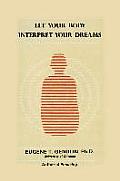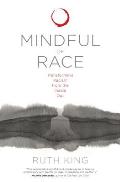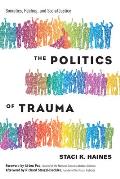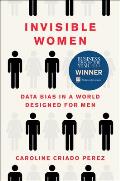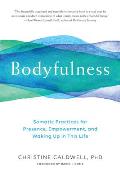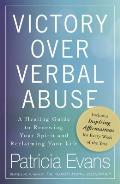Eugene Gendlin did research into what makes psychotherapy effective, and distilled what he found into Focusing. The client/Focuser pays attention to what is unclear but present inside, and the therapist/Companion facilitates that.
In this book, he applies Focusing to interpreting dreams. You get a sense inside of the dream, and then ask one or more of the following questions and feel for a bodily response.
First, love and enjoy the dream, whether interpreted or not. The next one may be clearer if dreams feel welcomed. Only the dreamer can interpret a dream. An outsider can offer questions, but the dreamer is the one who knows.
(Associations)
1: What comes to you?
2: Feeling of the dream?
3: What happened yesterday?
(Place, Story, Characters)
4: Visualize the place or setting of your dream. What does it remind you of?
5: Summarize the story in a general way.
6: What/who do the important characters remind you of?
(More with characters)
7: What part of you is that?
8: Be that person? Let your body respond like a character in the dream.
9: Allow the dream to continue
(Decoding)
10: Symbols? “Standard” symbols, or “What kind of thing is that?” For example a bridge crosses from one side to the other.
11: Body analogy? High up in your head, lower down in your body, underground unconscious.
12: Counterfactual: What in the dream is different from reality?
(Growth and development)
13: Childhood associations?
14: Personal growth? Where is your growing edge, your stuck place, your struggle?
15: Sexuality? How might the dream apply to how you express yourself sexually?
16: Spirituality? How does the dream relate to the numinous?
There is a whole chapter on question 10, symbols, and it dates the book, with references to Indians in stereotypical roles rather than respectfully referring to Native Americans, and what is now a slur to refer to someone with developmental disabilities.
Bias control: Listen inside in a friendly way, rather than arguing with or criticizing what comes. Notice if you are reflexively interpreting a dream to agree with what you already believe and ignoring parts that disagree with that.
Invite a growth direction from the dream by noticing what is new, different, unaccustomed for you. Consider small actions that move in that direction.
Dreams, especially over time, can give a sense of where we are with a longer process or issue.
Grounding dreams are a special case of this. Many people have dreams of being above ground level, which can correspond with not being connected with the body and the physical sense of being supported by the ground. “The ground holds you with ease, solidly, as an adult can hold a child. You can exhale all the way, stop being careful, let go, just be.” Our capacities are more available to us when we trust we are solidly held by the ground, like a strong person who can move things by pushing off the ground.
Recommended as a compassionate set of tools for interpreting dreams and listening to yourself and your body.

